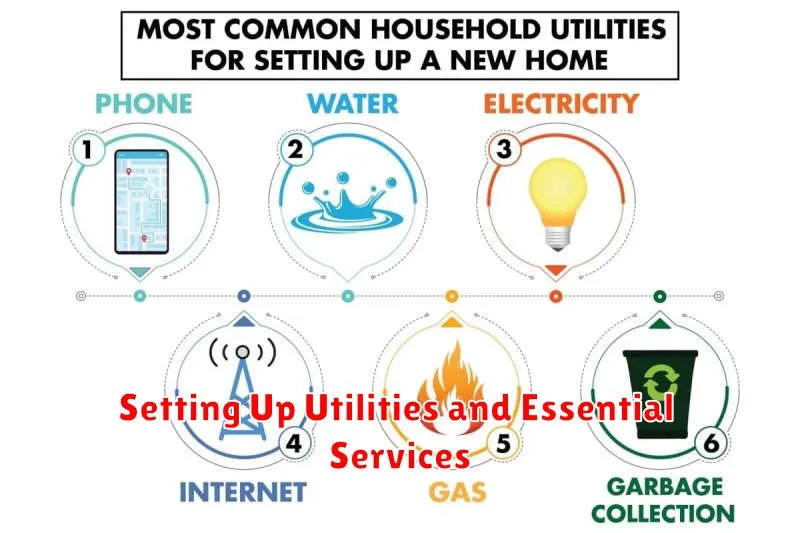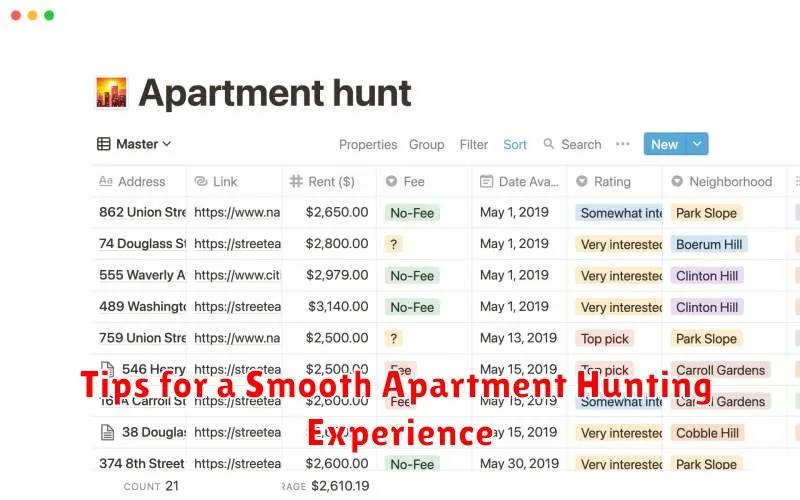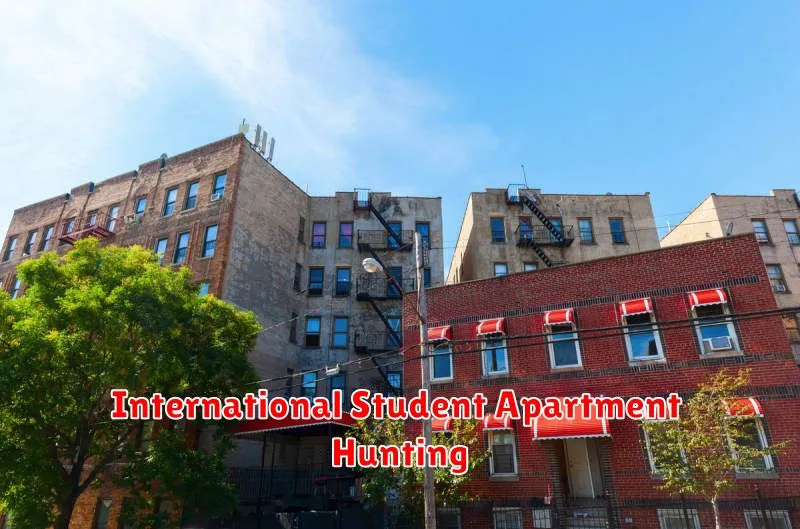Moving to a new country for school is exciting, but it can also be overwhelming. Finding a place to live is one of the first and most important steps, especially for international students. Renting an apartment can be a great option, offering more privacy and independence than a dorm. But navigating the rental market as an international student can be tricky. This guide will equip you with everything you need to know about renting an apartment in a new country, from understanding the basics of leasing agreements to navigating the application process. Let’s break down the steps to help you find the perfect place to call home during your time abroad.
Understanding the Rental Process for International Students
The rental process can seem daunting, especially for international students new to a country. Navigating the complexities of finding, securing, and renting an apartment can be overwhelming. However, understanding the process and key steps can make it much easier. This section will guide you through the essentials of renting an apartment as an international student.
1. Research and Preparation: Before you start looking for apartments, it’s essential to research and prepare. This involves understanding your budget, the desired location, and the type of housing you prefer (studio, apartment, shared housing). Research the average rent prices in your chosen area and factor in additional costs like utilities, internet, and insurance.
2. Finding an Apartment: Several resources are available to help you find an apartment, including online real estate websites, local newspapers, and university housing services. When searching, consider factors like proximity to your university, public transportation, and amenities. It’s also beneficial to reach out to local communities and student groups for recommendations.
3. Viewing Apartments: Once you have identified potential apartments, schedule viewings. Take this opportunity to inspect the property thoroughly, noting any issues or concerns. Ask questions about the lease terms, security deposit, utilities, and any specific rules or restrictions.
4. Application and Lease Agreement: If you find a suitable apartment, you’ll need to submit an application. This typically includes personal information, proof of income, and references. Once your application is approved, you will be presented with a lease agreement, outlining the terms of your tenancy. Review this carefully, ensuring you understand all the clauses and obligations.
5. Security Deposit and First Month’s Rent: You will likely be required to pay a security deposit and the first month’s rent before moving in. The security deposit is refundable at the end of your lease if you fulfill the terms of the agreement. Be sure to ask about the process for receiving your deposit back when you move out.
6. Utilities and Insurance: Make arrangements for utilities such as electricity, gas, water, and internet. You may need to set up accounts with local providers. Consider renter’s insurance to protect your belongings against theft, fire, or other unforeseen events.
7. Moving In and Settling In: On your move-in date, inspect the property again and document any existing damage. This protects you from potential accusations later. Take photos or videos as evidence. Once settled, familiarize yourself with your building’s rules and regulations, and create a good relationship with your landlord or property manager.
Remember, the rental process can vary depending on the location and the landlord’s policies. Always ask questions, review all documents carefully, and seek clarification on any terms you don’t understand. Staying organized and proactive throughout the process can help you avoid complications and ensure a smooth transition into your new apartment.
Finding Suitable Apartments for International Students
When looking for an apartment as an international student, it’s important to consider your specific needs and preferences. A good place to start is by asking yourself some key questions. Do you prefer living with other students, or would you rather have your own space? What is your budget, and how close do you need to be to your university? Are there certain amenities you need, such as laundry facilities, parking, or internet access?
Once you have a better understanding of your needs, you can start to research different apartment options. There are many online resources available, such as student housing websites, apartment search engines, and university housing departments. You can also ask friends, classmates, or fellow international students for recommendations.
When you’ve found a few potential apartments, it’s important to visit them in person to get a feel for the place. Consider factors like the size of the apartment, the condition of the building, and the neighborhood. It’s also a good idea to talk to current residents if possible to get their feedback on the apartment and the landlord.
Finding the right apartment can be challenging, but it’s an important step in your journey as an international student. By doing your research and taking the time to find a place that meets your needs, you can set yourself up for a successful and enjoyable experience.
Required Documentation for International Student Rentals
When renting an apartment as an international student, you’ll likely be asked to provide more documentation than domestic students. This is because landlords want to be sure that you can afford the rent and that you are legally allowed to live in the country.
Here are some of the most common documents you’ll need:
- Valid passport and visa: This is the most important document you’ll need to show. Make sure your passport is valid for the entire length of your lease and that your visa allows you to live in the country.
- Proof of enrollment: This is usually a letter from your school confirming that you are enrolled in a program. It may need to specify the length of your program and your expected graduation date.
- Financial documentation: This could include bank statements, a letter of sponsorship from your family or a financial institution, or a scholarship award letter. These documents need to show that you can afford to pay the rent and living expenses.
- References: This could be from your previous landlord, school officials, or any other reputable source. You may be asked to provide a list of references with contact information.
It’s best to check with your potential landlord or property management company about the specific documents they require. They may also have additional requirements depending on the specific laws in the country you’re living in.
Having all of the necessary documentation prepared in advance will make the rental process much smoother. It will also show your landlord that you are a responsible and trustworthy tenant.
Navigating Visa Requirements and Restrictions
As an international student, navigating visa requirements and restrictions is a crucial aspect of apartment hunting. Understanding your visa status and its implications on your rental situation is essential.
First and foremost, check your visa type and its associated regulations. Some visas might limit the type of housing you can occupy, like restricting you to on-campus accommodations. Additionally, your visa may impose a maximum stay duration that could impact the length of your lease.
Communicate with your potential landlord about your visa status. Transparency ensures a smoother process and prevents any legal issues. Some landlords might be hesitant to rent to international students due to uncertainties. Be prepared to provide documentation that validates your visa and financial capability.
It’s also vital to consider the requirements for obtaining a work permit or employment authorization. If you plan to work part-time or full-time, ensure that your visa allows for employment and that your chosen apartment is within the permissible work zone.
Navigating visa requirements and restrictions can be complex, so reaching out to student support services, international student offices, or immigration lawyers can be immensely beneficial. They can provide specific guidance, address your concerns, and ensure you comply with the legal framework.
Working with Landlords or Rental Agencies
Navigating the rental process as an international student can seem daunting, especially when dealing with landlords or rental agencies. Understanding their roles and expectations is crucial. Landlords are individuals or entities who own the property you’re renting. They are responsible for maintaining the property and ensuring it meets basic safety standards. Rental agencies, on the other hand, act as intermediaries between landlords and tenants. They manage the rental process, including screening applications, collecting rent, and handling maintenance requests.
When working with landlords or agencies, communication is key. Be clear about your needs and expectations. Ask for a detailed lease agreement that outlines the rental terms, including rent amount, deposit requirements, utilities included, and any restrictions on pets or guests. Understand your rights as a tenant and familiarize yourself with local laws regarding rental properties. It’s also important to maintain a good relationship with your landlord or agency by paying rent on time and promptly reporting any maintenance issues. By proactively communicating and being respectful, you can build a positive and productive relationship with your landlord or rental agency.
Understanding Lease Agreements and Terms
Before signing a lease agreement, it is crucial to carefully read and understand all the terms and conditions. This document outlines your rights and responsibilities as a tenant. Pay attention to key aspects such as:
Lease Duration: This specifies the period for which you are renting the apartment. Understand the renewal process and any associated fees.
Rent Amount and Payment Schedule: Clearly understand the monthly rent, due date, and any late payment penalties.
Security Deposit: Be aware of the deposit amount, its purpose (e.g., covering damages), and the process for getting it back upon moving out.
Utilities: Determine which utilities are included in the rent and which you are responsible for paying separately.
Pet Policy: If you have pets, make sure the lease allows them and what restrictions might apply (e.g., breed, size, number).
Maintenance and Repairs: Understand who is responsible for repairs (landlord or tenant) and the procedures for reporting issues.
Early Termination: Review the terms for breaking the lease early, including any associated fees or penalties.
Subletting: Check whether subletting is allowed and under what conditions.
Noise Ordinances: Familiarize yourself with any noise restrictions imposed by the landlord or local authorities.
Liability and Insurance: Understand the landlord’s liability for any injuries on the property and consider getting renter’s insurance for your belongings.
Don’t hesitate to ask the landlord or a legal professional for clarification on any unclear terms or conditions. This will ensure that you fully understand your obligations and rights as a tenant.
Guarantors and Co-signers for International Students
As an international student, you may face challenges when renting an apartment. One of the biggest hurdles is finding a landlord who will accept you as a tenant. Many landlords require a guarantor or co-signer, which is a person who agrees to be financially responsible for the rent if you fail to pay. This helps to alleviate the landlord’s risk.
A guarantor is typically a person who is a citizen or permanent resident of the country where you are renting, and who has good credit history. A co-signer is someone who will share the financial responsibility for the lease. They typically need to meet the same requirements as a guarantor.
If you cannot find a guarantor or co-signer, you may have to consider looking for a roommate who is willing to co-sign the lease. You could also try to find a landlord who is willing to accept a higher security deposit or a longer lease term. Finding a landlord who is willing to work with you can be difficult, but it is not impossible. You may need to be willing to compromise in order to secure a rental.
It is important to remember that you are ultimately responsible for paying the rent, even if you have a guarantor or co-signer. Make sure to understand the terms of the lease agreement and communicate with your landlord clearly. By understanding the requirements for guarantors and co-signers, you can increase your chances of finding a place to live as an international student.
Paying Rent and Security Deposits
Before you sign a lease, understand the payment terms and requirements for rent and security deposits. Most landlords require a security deposit, which is a refundable amount held by the landlord to cover potential damages to the apartment. The deposit is typically returned to you when you move out, minus any deductions for repairs. The security deposit amount varies depending on the apartment and location, but it’s usually equivalent to one or two months’ rent.
Rent payments are usually due on a specific date each month. You’ll need to set up a reliable payment method, such as a direct debit or online payment portal, to ensure your rent is paid on time. Late fees can apply if your rent is not paid by the due date, so be sure to stay organized and avoid late payments.
Landlords may require you to provide a guarantor, a person who agrees to be financially responsible for your rent if you fail to pay. This is common for international students who don’t have a strong credit history in the country. Ensure you have a reliable guarantor who understands the responsibilities and is willing to sign the necessary documents.
Always clarify the following with your landlord before signing the lease:
- Rent amount and due date
- Security deposit amount and terms
- Late payment penalties
- Guarantor requirements
Being aware of the rent and security deposit terms will help you avoid any unexpected expenses and ensure a smooth rental experience.
Setting Up Utilities and Essential Services

Once you have found your apartment, it’s time to set up essential services like electricity, gas, water, internet, and phone. This can be done directly with the utility providers or through a third-party company.
Electricity and Gas: Contact the local utility companies to arrange for the transfer of services to your name. Be prepared to provide your lease agreement and personal information. Many providers allow you to set up accounts online.
Water: Similar to electricity and gas, water services are usually handled by local utility companies. Contact them to set up an account in your name.
Internet: Check internet providers in your area and choose a plan that suits your needs and budget. You may want to consider factors like speed, data caps, and contract terms.
Phone: If you need a phone line, you can contact a local phone provider and set up a plan. You may also be able to use a mobile phone service instead.
Other Utilities: Depending on your apartment, you may need to set up other services like cable TV or trash collection. These services are usually handled by separate companies.
Tips for a Smooth Apartment Hunting Experience

Finding an apartment can be a stressful process, especially for international students navigating a new city and culture. To make the experience smoother, consider these tips:
Start early: Don’t wait until the last minute to start looking for an apartment. The earlier you begin your search, the more options you’ll have and the less pressure you’ll feel.
Set a budget: Determine how much rent you can comfortably afford each month. Factor in utilities, internet, and other potential costs. Having a clear budget helps you narrow down your search to apartments within your range.
Make a list of priorities: Consider what features are most important to you in an apartment. This could include location, size, amenities, and proximity to public transportation. Prioritizing your needs will help you evaluate apartments more effectively.
Use online resources: Numerous websites and apps cater to apartment seekers. Explore platforms like Zillow, Craigslist, and Apartments.com to find listings that meet your criteria. Consider using filters to refine your search based on price, location, and amenities.
Be prepared to act fast: Good apartments often go quickly. If you find an apartment that interests you, be prepared to act quickly. This may involve submitting an application or scheduling a viewing right away.
Be thorough: When viewing apartments, pay close attention to the condition of the unit and the surrounding neighborhood. Don’t hesitate to ask questions about any concerns you may have. Check for signs of damage, noise levels, and overall safety.
Negotiate: Don’t be afraid to negotiate rent or ask for concessions. Many landlords are willing to work with potential tenants, especially those who are willing to sign a long-term lease. Remember, you are also looking for a place to call home, and it’s essential to feel comfortable and secure.
Cultural Differences to Consider
Renting an apartment as an international student can be an exciting experience, but it’s also important to be aware of potential cultural differences that might impact your search. Here are a few key areas to consider:
Communication: Different cultures have varying communication styles. Some cultures emphasize direct communication, while others prefer a more indirect approach. Be mindful of how you communicate with landlords and potential roommates, and try to be clear and respectful in your interactions.
Social Customs: Understanding local customs and traditions is crucial for building positive relationships with your landlord and neighbors. For instance, some cultures may have specific etiquette regarding noise levels, visitor hours, or the sharing of communal spaces. Researching these norms beforehand will help you navigate these situations smoothly.
Lifestyle Differences: Cultures can have different approaches to personal space, cleanliness, and even the use of utilities. Consider these factors when choosing a place to live. If you have a particular lifestyle preference, communicate it clearly during the rental process to ensure a good match.
Cultural Sensitivity: Remember that everyone has their own unique cultural background. Be respectful of your landlord’s and neighbor’s customs and practices, and be open to learning from their experiences. Showing cultural sensitivity will go a long way in building positive relationships and fostering a comfortable living environment.
Building a Good Relationship with Your Landlord

Having a good relationship with your landlord can make your time renting an apartment much smoother. While it’s important to be respectful of their property and follow the terms of your lease, it’s also beneficial to establish open communication and build a positive relationship.
Here are some tips for building a good relationship with your landlord:
- Be Prompt with Rent Payments: Paying rent on time shows you are a responsible tenant and helps avoid any potential issues or late fees.
- Communicate Clearly: If you need to make a request or report a problem, do so clearly and respectfully. This ensures they understand your needs and can address them promptly.
- Be Respectful of the Property: Maintain the apartment in good condition, keeping it clean and tidy. Respect the rules of the building and avoid excessive noise or disturbances.
- Be Proactive with Repairs: Report any maintenance issues promptly to avoid them escalating into bigger problems.
- Be Accessible: Ensure your contact information is up-to-date and respond to your landlord’s messages or calls in a timely manner.
- Treat Your Landlord with Respect: Remember that your landlord is a person just like you. Treat them with courtesy and respect even if there are disagreements or issues.
By following these tips, you can establish a positive relationship with your landlord, which will benefit you throughout your tenancy.

